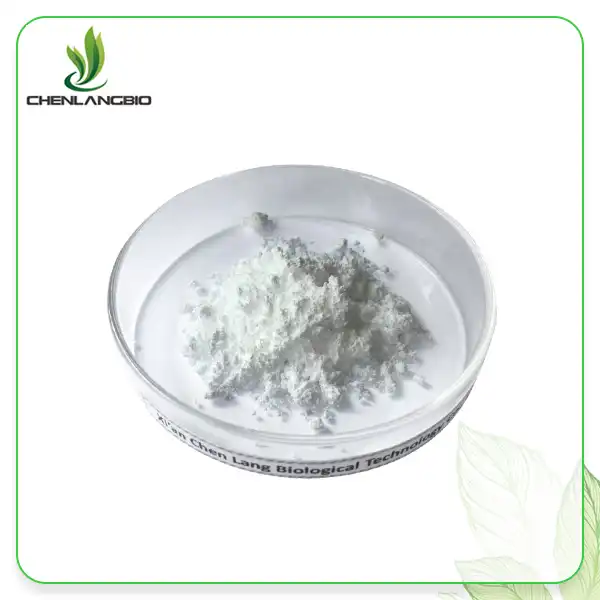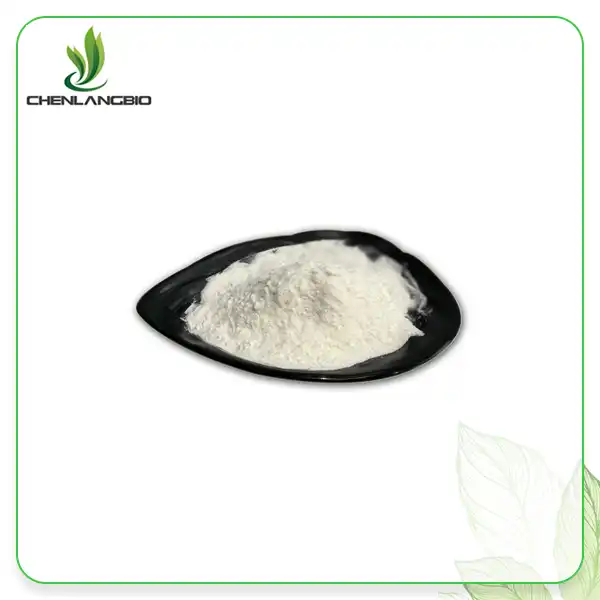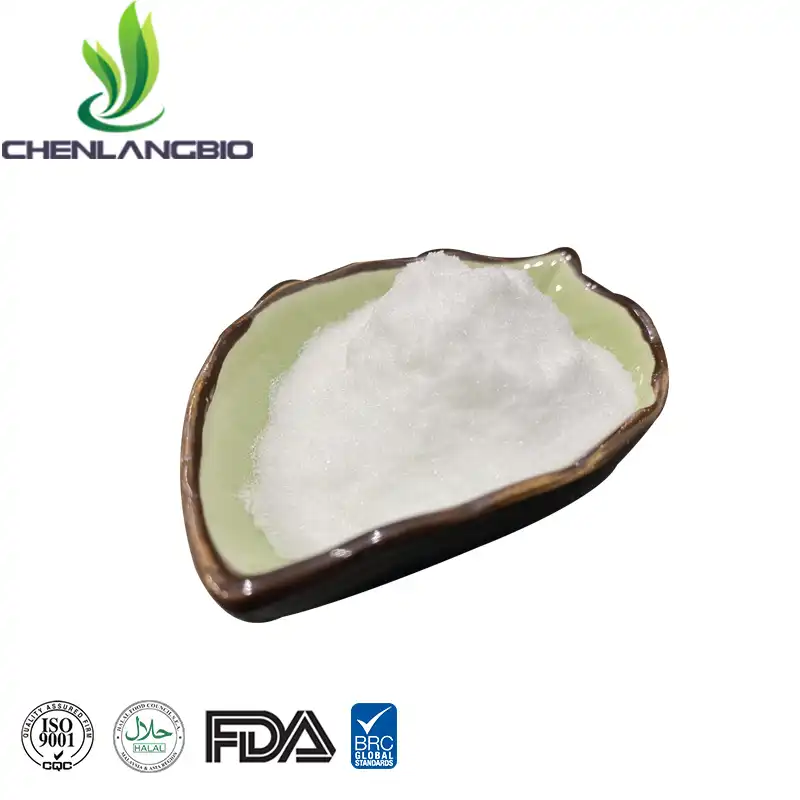What Are the Side Effects of Cactus Extract
2024-07-01 16:33:08
Cactus extract, particularly in powder form, has gained popularity for its numerous health benefits, including aiding in weight management, improving skin health, and supporting immune function. However, like any supplement, it is essential to be aware of potential side effects and risks associated with its use. Understanding these side effects can help consumers make informed decisions and use cactus extract safely.

Can Cactus Extract Cause Digestive Issues
What Are the Common Digestive Side Effects of Cactus Extract
While cactus extract is generally safe for most people, it can cause digestive issues in some individuals. The high fiber content in cactus extract can lead to gastrointestinal discomfort, including bloating, gas, and diarrhea, especially when consumed in large amounts. For those not accustomed to high-fiber diets, it is advisable to start with a smaller dose and gradually increase it to allow the digestive system to adjust.
How Can Cactus Extract Affect Gut Health
Cactus extract contains prebiotics, which can promote the growth of beneficial gut bacteria. However, an abrupt increase in prebiotic intake can lead to an imbalance in gut flora, causing symptoms such as cramping and discomfort. To mitigate this, it is essential to introduce cactus extract gradually into your diet and ensure you are staying hydrated to support healthy digestion.
Are There Any Long-Term Digestive Effects
Long-term use of cactus extract is generally considered safe, but excessive consumption may lead to chronic digestive issues. Overconsumption of fiber can result in nutrient malabsorption, as fiber can bind to certain minerals and prevent their absorption in the intestines. To avoid this, it is crucial to follow recommended dosages and maintain a balanced diet that includes a variety of fiber sources.

Can Cactus Extract Interact with Medications
What Are the Potential Drug Interactions with Cactus Extract
Cactus extract may interact with certain medications, potentially altering their effectiveness or causing adverse effects. One of the primary concerns is its interaction with diabetes medications. Since cactus extract can lower blood sugar levels, combining it with diabetes drugs might lead to hypoglycemia (low blood sugar). It is important for individuals on such medications to monitor their blood sugar levels closely and consult their healthcare provider before using cactus extract.
How Can Cactus Extract Affect Blood Pressure Medication
Cactus extract's high potassium content can influence blood pressure regulation. While this can be beneficial for those with hypertension, it may pose risks for individuals taking blood pressure medications. Excessive potassium intake can lead to hyperkalemia (high potassium levels), which can interfere with the action of blood pressure medications and lead to serious health complications. Again, consulting with a healthcare provider is crucial before adding cactus extract to your regimen.
Are There Any Other Notable Interactions
Cactus extract may also affect the absorption of certain medications due to its high fiber content. For instance, it can reduce the effectiveness of medications that require absorption in the intestines. It is advisable to take cactus extract supplements at different times from other medications to prevent potential interactions. Always discuss with your healthcare provider about any supplements you are considering to avoid adverse interactions.
Can Cactus Extract Cause Allergic Reactions
What Are the Symptoms of an Allergic Reaction to Cactus Extract
Although rare, some individuals may experience allergic reactions to cactus extract. Symptoms can range from mild to severe and may include itching, hives, swelling of the face or throat, difficulty breathing, and anaphylaxis. If you have a history of allergies, especially to plants in the Cactaceae family, it is important to exercise caution and consult with a healthcare provider before using cactus extract.
How Can You Test for Allergies to Cactus Extract
Before incorporating cactus extract into your diet or skincare routine, it is advisable to perform a patch test or start with a very small dose. Monitor your body’s response over 24 to 48 hours for any signs of an allergic reaction. If you experience any symptoms of an allergy, discontinue use immediately and seek medical advice.
Are There Any Long-Term Allergic Concerns
While an initial allergic reaction is usually immediate, there can be long-term concerns if the allergic response is not addressed. Repeated exposure to an allergen can lead to chronic allergic reactions or more severe responses over time. Ensuring that you are not allergic before continued use is essential for your safety.
What Precautions Should Be Taken When Using Cactus Extract
How Should Cactus Extract Be Consumed Safely
To consume cactus extract safely, it is important to adhere to the recommended dosages provided by manufacturers or healthcare providers. Gradually introducing the supplement into your diet can help minimize digestive discomfort. Staying well-hydrated is also crucial, as fiber absorbs water and can lead to dehydration if not enough fluids are consumed.
Who Should Avoid Cactus Extract
Certain individuals should avoid cactus extract or use it with caution. These include:
Pregnant and Breastfeeding Women: There is limited research on the safety of cactus extract during pregnancy and breastfeeding, so it is best to avoid it unless advised otherwise by a healthcare provider.
Individuals with Kidney Conditions: The high potassium content can exacerbate kidney problems and should be avoided unless recommended by a healthcare provider.
People with Chronic Gastrointestinal Issues: Those with conditions such as irritable bowel syndrome (IBS) or Crohn’s disease may find that the high fiber content aggravates their symptoms.
What Are the Best Practices for Storing and Using Cactus Extract
Proper storage of cactus extract is essential to maintain its efficacy and safety. Store it in a cool, dry place away from direct sunlight. Ensure that the container is tightly sealed to prevent moisture and contaminants from entering. Following the expiration date and storage guidelines provided by the manufacturer can help ensure the supplement remains safe to use.
Conclusion
While cactus extract offers numerous health benefits, it is essential to be aware of potential side effects and interactions. By understanding these risks and taking appropriate precautions, you can safely incorporate cactus extract into your health and wellness routine. For more information on cactus extract powder products, please contact us at admin@chenlangbio.com
References
Healthline. Side Effects of Cactus Extract. Retrieved from Healthline.
WebMD. Understanding the Risks of Cactus Extract. Retrieved from WebMD.
PubMed. Gastrointestinal Effects of High-Fiber Supplements. Retrieved from PubMed.
Harvard Health. Interactions Between Supplements and Medications. Retrieved from Harvard Health.
Mayo Clinic. Allergic Reactions to Natural Supplements. Retrieved from Mayo Clinic.
National Institutes of Health. Safety and Efficacy of Herbal Supplements. Retrieved from NIH.
Journal of Nutrition. Prebiotic Effects of Plant Extracts. Retrieved from Journal of Nutrition.
American Journal of Clinical Nutrition. Fiber and Nutrient Absorption. Retrieved from AJCN.
Skincare.com. Allergies and Skincare Ingredients. Retrieved from Skincare.com.
Chemicool. Properties of Cactus Extract. Retrieved from Chemicool.
Send Inquiry
Related Industry Knowledge
- Podophyllin Powder: A Complete Guide
- In What Forms is Kopyrrol Available?
- What is Dimethylmethoxy Chromanol Used for in Skincare
- Is Ectoin Safe During Pregnancy
- Can Loratadine Cause Weight Gain
- Can I Use Sodium Ascorbyl Phosphate with Retinol
- Is Dimethylmethoxy Chromanol Safe for Skin
- Is Ecdysterone And Turkesterone Superior To Hyaluronic Acid Powder?
- What Are the Benefits of Chaga Mushroom Extract Powder
- Unlocking the Benefits Understanding the Uses of TUDCA









